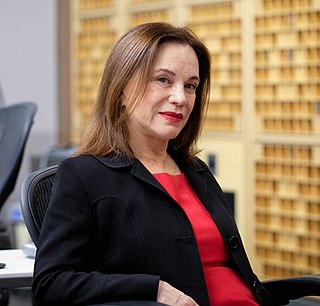A Quote by P. G. Wodehouse
Beginning with a critique of my own limbs, which she said, justly enough, were nothing to write home about, this girl went on to dissect my manners, morals, intellect, general physique, and method of eating asparagus with such acerbity that by the time she had finished the best you could say of Bertram was that, so far as was known, he had never actually committed murder or set fire to an orphan asylum.
Quote Topics
Related Quotes
She'd always known he loved her, it had been the one certainty above all others that had never changed, but she had never said the words aloud and she had never meant them quite this way before. She had said it to him, and she hardly knew what she had meant. They were terrifying words, words to encompass a world.
The tears that kept Buttercup company the remainder of the day were not at all like those that had blinded her into the tree trunk. Those were noisy and hot; they pulsed. These were silent and steady and all they did was remind her that she wasn’t good enough. She was seventeen, and every male she’d ever known had crumbled at her feet and it meant nothing. The one time it really mattered, she wasn’t good enough.
I brought a picture with me that I had at home, of a girl in a swing with a castle and pretty blue bubbles in the background, to hang in my room, but that nurse here said the girl was naked from the waist up and not appropriate. You know, I've had that picture for fifty years and I never knew she was naked. If you ask me, I don't think the old men they've got here can see well enough to notice that she's bare-breasted. But, this is a Methodist home, so she's in the closet with my gallstones.
She smiled. She knew she was dying. But it did not matter any longer. She had known something which no human words could ever tell and she knew it now. She had been awaiting it and she felt it, as if it had been, as if she had lived it. Life had been, if only because she had known it could be, and she felt it now as a hymn without sound, deep under the little whole that dripped red drops into the snow, deeper than that from which the red drops came. A moment or an eternity- did it matter? Life, undefeated, existed and could exist. She smiled, her last smile, to so much that had been possible.
This was exactly what the girl had most dreaded all her life and had scrupulously avoided until now: lovemaking without emotion or love. She knew that she had crossed the forbidden boundary, but she proceeded across it without objections and as a full participant; only somewhere, far off in a corner of her consciousness, did she feel horror at the thought that she had never known such pleasure, never so much pleasure as at this moment--beyond that boundary.
I remember I had had one woman who had three or four kids, and some of them were having problems. I said, 'Maybe you could go write somewhere else, away from your house.' And sure enough, all kinds of wonderful stuff emerged. She was keeping too much charge of herself because she couldn't stop being a mother when she was in the house. You have to find your own way of letting loose, if you're one of those people.
Berta Caceres was a Lenca Indian activist well-known in her country, shot in her home. She was not only known in Honduras, she was one of the world's best-known environmentalists and had recently opposed plans for a dam on a river considered sacred by the Lenca. Honduran police have said they are investigating the murder as a botched robbery, but many of her colleagues believe Caceres was targeted.
I asked a girl who came from America to England, when I was only English, and she admitted she had been to a drama school. And I said, "What did they teach you?" And she said, "They taught me to be a candle burning in an empty room." I'm happy to say she was laughing while she said it, but she meant it. I've never learned to be a candle burning in an empty room. So I go on the screen, and I say whatever I'm told to say.
There were days - she could remember this - when Henry would hold her hand as they walked home, middle-aged people, in their prime. Had they known at these moments to be quietly joyful? Most likely not. People mostly did not know enough when they were living life that they were living it. But she had that memory now, of something healthy and pure.
Insofar as she recognized at all that she was dreaming, she realized that she must be exploring her subconscious mind. She had heard it said that humans are supposed only to use about a tenth of their brains, and that no one was really clear what the other nine tenths were for, but she had certainly never heard it suggested that they were used for storing penguins.
My mother hid the struggle from us children. She complained about her salary, and she had a tough time. Although she became a headmistress, she still had to do a lot of sewing. The more I think about her, the more remarkable I realise she was. And she understood straight away when I said that I wanted to write.
She emptied herself of Fabio and of herself, of all the useless efforts she had made to get where she was and find nothing there. With detached curiosity she observed the rebirth of her weaknesses, her obsessions. This time she would let them decide, since she hadn't been able to do anything anyway. Against certain parts of yourself you remain powerless, she said to herself, as she regressed pleasurably to the time when she was a girl.
She remembered that once, when she was a little girl, she had seen a pretty young woman with golden hair down to her knees in a long flowered dress, and had said to her, without thinking, "Are you a princess?" The girl had laughed very kindly at her and asked her what her name was. Blanche remembered going away from her, led by her mother's hand, thinking to herself that the girl really was a princess, but in disguise. And she had resolved that someday, she would dress as though she were a princess in disguise.





































